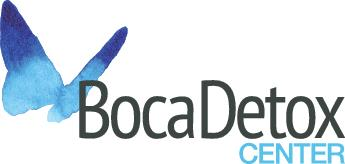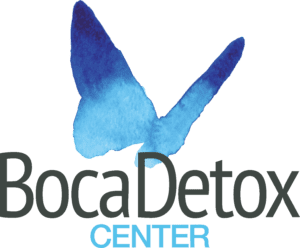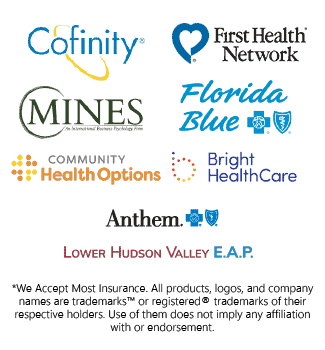Drug Detox refers to a medical intervention in any case of drug addiction, geared towards managing symptoms of withdrawal with the ultimate goal of physical stabilization. In most instances, medical drug detox programs will focus exclusively on the physical symptoms of drug addiction and withdrawal, and will not address the complex behavioral issues that coincide with active addiction. At Boca Detox we believe that medical detox should effectively pave the way for the next appropriate level of care, which is typically inpatient or residential drug treatment. Not only do we provide each one of our clients with a highly personalized program of drug detoxification, but we offer a wide range of related services and resources, all geared towards comprehensive physical, mental and emotional healing.
The Boca Detox Center Method: Drug Detox
At Boca Detox, we take a unique approach to drug detoxification. Whereas state-funded facilities and hospital settings offer standardized, impersonal care, we treat each of our clients on a highly individualized basis. The Boca Detox method focuses on more than physical stabilization. We work to adequately prepare our clients to take the next appropriate step on their personal journeys of addiction recovery. As part of the Guardian Recovery Network family, we work closely with several of the top residential rehabs and outpatient treatment programs in the country. Once you have undergone a safe, pain-free drug withdrawal and have been deemed physically stable, we will help you determine which level of care is right for you. Contact us today to learn more about drug withdrawal treatment options, or to get started on your own personal journey of recovery.
Detoxing From Drugs
Depending on what drugs were involved in active addiction, the symptoms of drug withdrawal can be extremely uncomfortable — even life-threatening if not properly treated. At Boca Detox we offer a safe and pain-free detox in a private, homestyle retreat. The severity and duration of drug detox depends heavily on what type of substance was being used and the severity of the substance use disorder. If you have any additional questions about medically monitored drug detox, you are welcome to contact us directly.
Types of Commonly Abused Drugs
The National Institute on Drug Abuse has developed a chart that highlights the most commonly abused chemical substances throughout the United States. Some of the drugs that we have extensive experience with include:
- Opioid narcotics, such as heroin or prescription painkillers
- Benzodiazepines
- Stimulant drugs, such as methamphetamine or cocaine
- Hallucinogens, such as LSD or psilocybin (magic mushrooms)
- Inhalant drugs
- Synthetic drugs, from synthetic stimulants and synthetic opioids to drugs like Spice and K-2
- Marijuana
We Are Here For You
Let Us Help You Heal
Our detoxification experience is second to none.
Learn how we can help by speaking with one of our Treatment Advisors today.
At Boca Detox we have extensive experience treating individuals who have been suffering at the hands of polydrug abuse. This simply means we treat individuals who have been abusing more than one chemical substance at a time. Depending on the substance or substances being abused, we will utilize a number of detoxification techniques, all geared towards a safe, short-lived and pain free withdrawal process.
Signs of Drug Dependence & Misuse
If you believe you or someone you love has been suffering from a diagnosable substance use disorder, there are several signs and symptoms to keep an eye out for. The Diagnostic and Statistical Manual of Mental Disorders, Fifth Edition (DSM-V) outlines a list of diagnostic criteria used to identify the presence of a substance use disorder. If you answer “yes” to two or more of the following questions, seeking professional help from a medical detox center is likely a good idea.
- Do you sometimes end up using a higher dose of a drug than you originally intended, or do you use your drug of choice more frequently than you intend to?
- Have you wanted to cut back on your dose or quit entirely, only to find you were unable to do so for any significant period of time?
- Do you spend a significant amount of time obtaining your drug of choice, using your drug of choice and recovering from its effects?
- Do you often think of using your drug of choice/do you ever experience intense cravings?
- Has your drug use interfered with your ability to fulfill personal obligations or negatively impacted your performance at work or at school?
- Have you experienced interpersonal problems as a direct result of your drug use?
- Have you given up activities which were once interesting or important to you in order to engage in drug use?
- Have you been engaging in risk-taking activities more often than normal, like driving while under the influence of drugs or combining your drug of choice with other substances like alcohol or opioid narcotics?
- Do you continue to use your drug of choice despite physical or psychological health concerns directly related to the prescription medication?
- Have you developed a physical tolerance, meaning a higher dose is required in order for the desired effects to be achieved?
- Do you experience withdrawal symptoms when drug use is stopped abruptly?
Our Detox Services Include
What are the Signs & Symptoms of Different Types of Drug Withdrawal?
The symptoms of drug withdrawal vary significantly based on which substance was being used. At Boca Detox we effectively and efficiently treat the physical and psychological symptoms associated with drug withdrawal using a combination of evidence-based methods. Contact us today to learn more.

Common Symptoms of Opioid Withdrawal
- Muscle aches and pains
- Stomach cramping
- Nausea and vomiting
- Flu-like symptoms, including watery eyes, runny nose, night sweats and chills
- Excessive yawning
- Restlessness/an inability to sit still
- Anxiety and panic attacks
- Depressed mood
- Suicidal ideation
- Intense drug cravings
Common Symptoms of Stimulant Withdrawal
- Increased appetite
- Restlessness and irritability
- General feelings of physical discomfort
- Anxiety
- Depressed mood
- Intense drug cravings
- Insomnia and other sleep-related issues
Common Symptoms of Benzodiazepine Withdrawal
- Increased heart rate and blood pressure
- Increased body temperature
- Body tremors
- Insomnia
- Anxiety and panic attacks
- Depressed mood and suicidal ideation
- Disorientation
- Confusion
- Hallucinations and delusions
- Grand mal seizures
Which Drug Withdrawals Are Fatal?
The symptoms associated with opioid and stimulant withdrawal are rarely fatal, but they can lead to serious complications when left untreated. However, benzodiazepine withdrawals can be fatal when left untreated — even if the medication was being misused for a short period of time. Research shows that around 40 percent of people who take benzodiazepines for longer than several weeks develop moderate to severe withdrawal symptoms, which can include heart palpitations and grand mal seizures. This is why entering into a medical detox program that provides 24/7 access to professional medical care is so important.
Drug Withdrawal Timelines & What to Expect
Opioid Withdrawal Timeline
The physical and psychological symptoms associated with opioid withdrawal typically begin within the 6 to 12 hours after the final dose and resolve within a week.
A standard opioid withdrawal timeline looks like this:
- 6 to 12 hours after the final dose – Mild symptoms begin to develop. These might include restlessness, mild discomfort and agitation/irritability.
- 72 hours after the final dose – Acute symptoms begin to develop and peak in severity. These symptoms often mimic the symptoms of a bad flu.
- One week to a month after the final dose – The more severe symptoms start to subside and are replaced by the symptoms of post-acute withdrawal, which include persistent drug cravings, insomnia, anxiety and mood swings.
Benzodiazepine Withdrawal Timeline
In most cases, benzodiazepine withdrawal occurs in three distinct stages — early withdrawal, acute withdrawal and post-acute (or protracted) withdrawal.
A standard benzodiazdepine withdrawal timeline looks like this:
- Week 1 – Most benzodiazepine have a long half-life, meaning initial withdrawal symptoms might not develop for close to one week. However, they can also develop within the first 24 hours after the final dose. These symptoms typically include increased heart rate and blood pressure and low-grade fever.
- Week 2-3 – Symptoms peak in intensity and include body tremors, nausea and vomiting, hallucinations and delusions, profuse sweating/night sweats, insomnia, agitation, severe anxiety and panic attacks, depressed mood, disorientation, and in extreme cases, grand mal seizures.
- Week 4 – After around one month, the more severe symptoms have likely subsided completely. They are replaced by symptoms of post-acute withdrawal, which might include insomnia, generalized anxiety and depressed mood.
Stimulant Withdrawal Timeline
A standard stimulant withdrawal timeline looks like this:
- Immediately after the final dose – Minor withdrawal symptoms begin to develop.
- 6-12 hours after the final dose – Severe withdrawal symptoms begin to develop, and include anxiety, depressed mood, drug cravings and agitation.
- 48-72 hours after the final dose – Severe symptoms subside and are replaced by symptoms of post-acute withdrawal.
Ready To Begin Your Detox?
We Offer A Safe & Effective Program
Don’t let addiction control your life.
Call us today and let’s get you started on the path to a better you.
How Will Boca Detox Center Treat My Detox Symptoms?
- Addiction Assessment – Conducting an in-depth addiction assessment helps the medical team determine which detox services are going to be the most beneficial for each unique case while helping clients develop a thorough plan for continuing care. At Boca Detox we conduct a detailed assessment within several hours of admission

- Medical Care – Clients have access to professional medical care 24/7. Vitals are checked regularly, and if anything seems abnormal it will be treated accordingly. Sometimes, medications prove beneficial during the detox stage of the treatment process. We help ease the pain of withdrawal by offering individuals MAT in a comfortable, homestyle setting with expert medical and clinical staff.
- Individualized Therapy – At Boca Detox we believe in client-driven therapy, meaning that specific therapeutic goals are determined by each individual client and his or her licensed therapist in a collaborative setting. Underlying issues are resolved while the client is in treatment, however, we encourage a continuation of individual therapy once detox has concluded.
- Psychiatric Services – At Boca Detox we offer dual diagnosis treatment services for clients who have previously been diagnosed with a mental illness and for clients who are experiencing severe psychological withdrawal symptoms. Clients have access to professional psychiatric care, and they have the option of meeting one-on-one with an on-staff psychiatrist whenever they need extra assistance.
- Aftercare/Continuing Care – While in detox, our clients work closely with a team of professionals including an individual therapist and a case manager. This team works together to help clients craft detailed, strategic aftercare plans for the time following medical detox. Aftercare could include continuing treatment in a residential rehab, an intensive outpatient setting, taking up residence in a sober living home, continuing personal therapy work and/or active involvement in a recovery community.
Will I Receive Detox Medications? How Will They Help?
Medication Assisted Treatment (MAT) is only utilized when deemed absolutely necessary by the medical team. Because active addiction affects everyone differently, the detox process will not look identical for any two clients. The right treatment options for you are determined upon your arrival.
Commonly utilized medications include:
- Clonidine. This medication can help alleviate nausea and vomiting.
- Buprenorphine. This medication helps alleviate the more severe symptoms of opioid withdrawal while reducing drug cravings.
- Over-the-counter pain relievers. Medications like acetaminophen and ibuprofen might be used to treat symptoms like headaches, low-grade fever and general feelings of physical discomfort.
- Non-addictive sleep aids. If a client is struggling with insomnia, a safe and non-narcotic sleep aid might be prescribed.
- Non-addictive muscle relaxants. Medications like Gablofen and Lioresal have been repeatedly proven to reduce the overwhelming psychological benzodiazepine cravings that often lead to relapse.
- Anticonvulsants. Seizures are not uncommon side effects when it comes to benzodiazepine withdrawals. In the case of a seizure, our prescribing physicians prescribe an anticonvulsant to be taken for the remainder of the acute detox period.
- Selective serotonin reuptake inhibitors (SSRIs). This specific type of antidepressant has been proven to alleviate the more disruptive psychological symptoms associated with benzodiazepine withdrawal.
Begin Healing Now!
Have A Call With One Of Our Treatment Advisors
Don’t Suffer Any Longer
Contact Us to Learn More
The symptoms associated with drug withdrawal can be extremely uncomfortable when left untreated. It is important to seek the care of a team of experienced medical professionals before associated symptoms peak in severity. At Boca Detox we effectively treat the symptoms associated with drug withdrawal while providing our clients with the tools they need to continue along on their personal journeys of addiction recovery. Getting started is as simple as reaching out for help. Once you make initial contact, either through our website or over the phone, you are put in touch with one of our experienced Treatment Advisors who will answer any additional questions and walk you through our simple admissions process. We begin by conducting a brief pre-assessment, which helps our medical team determine which detox methods are the best fit for you. We offer a free, no obligation insurance benefit check and arrange local transportation to our Boca, Florida detox center. All you have to do is reach out for help, and we will take care of the rest.
















